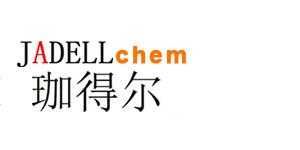Recombinant Human Eotaxin-3/CCL26 通过CCR3受体发挥作用,是嗜酸性粒细胞选择性化学诱导剂的活性。
Synonyms
rHuEotaxin-3/CCL26; C-C motif chemokine 26; MIP-4-alpha; TSC-1; SCYA26 ; 重组人嗜酸性细胞趋化因子 (CCL26)
Species
HumanSource
E. coli Accession
Q9Y258 Gene ID
10344 Molecular Weight
Approximately 8.4 kDa AA Sequence
TRGSDISKTC CFQYSHKPLP WTWVRSYEFT SNSCSQRAVI FTTKRGKKVC THPRKKWVQK YISLLKTPKQ L Biological Activity
Full biological activity determined by a chemotaxis bioassay using human CCR3 transfected HEK293 cells is in a concentration range of 0.5-2.0 μg/ml. Appearance
Lyophilized powder. Formulation
Lyophilized after extensive dialysis against PBS, pH 7.4. Endotoxin Level
<1 EU/μg, determined by LAL method. Reconstitution
Reconstitute the lyophilized recombinant Human Eotaxin-3/CCL26 (rHuEotaxin-3/CCL26) to 0.1-1.0 mg/mL using sterile distilled water or aqueous buffer containing 0.1% BSA. Storage & Stability
Lyophilized recombinant Human Eotaxin-3/CCL26 (rHuEotaxin-3/CCL26) is stored at -20°C. After reconstitution, it is stable at 4°C for 1 week or -20°C for longer. It is recommended to freeze aliquots at -20°C or -80°C for extended storage. Shipping
Room temperature in continental US; may vary elsewhere. Background
Eotaxin-3 (CCL26) is a CC chemokine that signals exclusively via the CCR3 receptor and has eosinophil-selective chemoattractant activity. Comparison of Eotaxin-1 (CCL11) and Eotaxin-2 (CCL24), demonstrates differences in their expression profiles, cell specificity and effector kinetics, implying distinct biological actions[1]. Human CCL26 plays a role in the sustained inflammation observed in patients with severe eosinophilic asthma and reveal CCL26 as a potential target for treating patients with eosinophilic asthma that are refractory to classic therapies[2]. |



